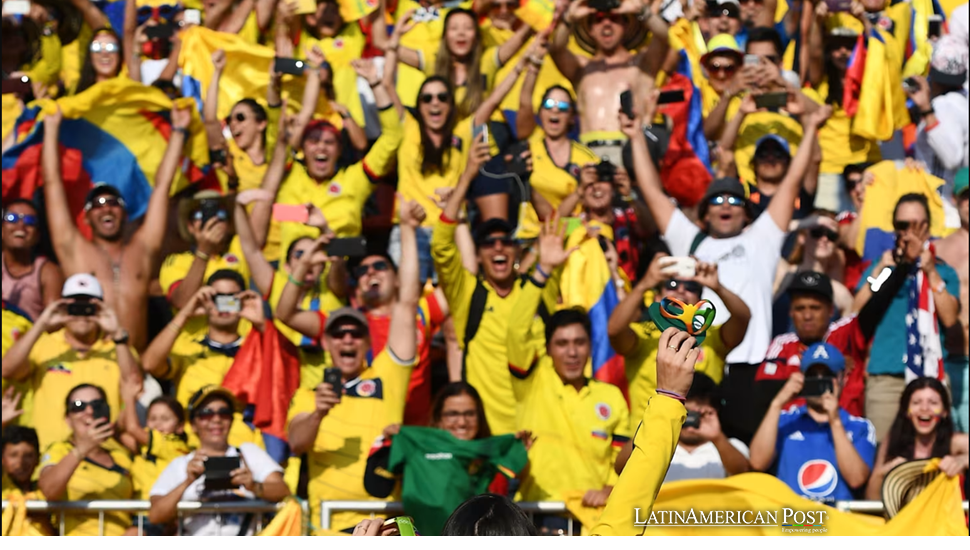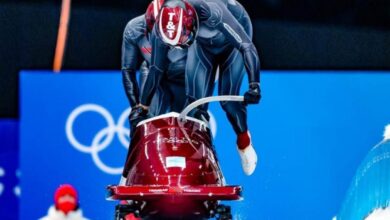Corruption and the Decline of Colombia’s Olympic Dreams

Latin American sports inspire pride, but scandals also often occur in this region. Colombia’s Olympic performance has sharply dropped since Rio 2016. This drop highlights a very troubling situation꞉: deep corruption harms athletes and institutions, crushing a nation’s dreams. Colombia suffers.
From Glory in Rio to Struggles in Paris
At the 2016 Rio Olympics, Colombia basked in its most significant moment of athletic triumph. Eight medals, three gold, symbolized a nation thriving on the global stage. Mariana Pajón became the queen of BMX with her second consecutive gold, while Caterine Ibargüen soared to victory in the triple jump, and Óscar Figueroa claimed top honors in weightlifting. These victories were not only medals. They showed the country’s improving sports facilities and athletes’ skills in various fields, such as boxing, athletics, cycling, and judo.
Yet, there were warning signals amid the celebrations. By Tokyo 2020, Colombia’s tally of medals decreased to five. Gold medals needed to be included. Athletes like Pajón, now competing in her third Olympics, managed to earn silver, but the nation’s athletic pipeline gaps were starting to show. When the Paris 2024 Olympics ended, the story worsened. With only four medals—three silver and one bronze—Colombia delivered its weakest performance since 2008. The absence of gold medals for a second consecutive Games showed a worrying pattern. Fewer athletes participate at the top level. Many disciplines fail to achieve wins. Competitors are not reaching victory often. This situation might grow more concerning.
Corruption at the Core of Colombia’s Sports Crisis
Frayed sports results in Colombia are linked to corruption in institutions. María Isabel Urrutia, a former Olympic athlete and past Sports Minister, now faces accusations of approving over $1 million in illicit deals. Reports reveal Urrutia skipped public bidding and chose contractors despite regulations. Legal authorities find no hidden crimes, yet this is how corruption in sports can damage the entire system.
Urrutia’s case highlights a broader problem of poor management. Over 100 contracts had strange terms, taking money that should go to athletes. Training centers became run-down. Necessary resources such as coaching and international events were scarce. Former world champions received minimal support. They sometimes entered tough competitions without being ready. They were alone. It was challenging. Colombia’s drop in medals indeed shows this decline.
In Rio, the country excelled in five sports, including boxing and athletics. By Paris, that number had shrunk to three: weightlifting, wrestling, and gymnastics. The wayside left promising athletes and entire disciplines casualties of a system prioritizing political and financial gains over athletic success.
Brazil’s Past Parallel Path
Colombia faces problems similar to those in other Latin American countries, where sports corruption hinders progress. Brazil, with a rich sports heritage and host of the 2016 Olympics, shows a clear warning. In 2011, Sports Minister Orlando Silva resigned after being accused of pocketing $23 million from a scheme for poor children’s sports. The charges demonstrated money for personal profit and political party affiliation.
Claims also hit Brazil’s big games—the 2014 FIFA World Cup and the Rio Olympics. Steady building costs, stadium deals bribed, and managerial failures made the headlines. Brazil did get a lot of medals in Rio, but not great. Training sites weren’t being funded, grassroots camps had less money, and new players weren’t coming along as fast. Brazil’s Olympic performance deteriorated after Rio, which illustrates the irreversible damage done by corruption.
Colombia experiences similar struggles. We have gifted players, both in poor countries. Programs designed to nurture young talent have been gutted in Brazil, leaving future generations with fewer opportunities to compete. For Colombia, the story is much the same: corruption at the top trickles down, sapping the lifeblood of sports development.
Athletes Left in the Shadows
Athletes feel corruption’s impact very personally. They train in places that need to be revised to global standards. Old equipment restricts their abilities. You get payments late, which is hugely annoying. This is something that many athletes struggle with within Colombia. They say that the lack of proper training means they are not up to the mark for world championships. The personal toll of corruption on these dedicated individuals is immense and should not be overlooked.
Corruption affects more than finances. It disintegrates a promise to athletes who invest their lives in training. The lack of resource use openness destroys trust in organizations and the sports world. In the United States or Germany, athletes can access top technology and modern coaching. In Colombia, athletes often work with much less.
Colombia’s Olympic success has decreased. In Rio, athletes won medals in five sports, while in Paris, medals came from only three. This highlights a lack of support for growth and variety. Colombia possesses great potential, but the decline in success is sad and avoidable.
Reclaiming Integrity and Restoring Glory
Like its Latin American neighbors, Colombia needs to act quickly to solve the main problems of its sports decline. The time for change is now. Trust in government starts with precise money management. Every peso given for sports growth needs to be checked, with outside audits keeping people responsible. Contracts should be given based on talent, not friendships or politics. These changes are necessary to bring back trust in the very necessary system.
Athletes need more influence in decisions. Groups led by athletes should control where funds are directed, addressing actual needs. Community-based programs must prioritize building talent and developing young athletes’ skills.
Collaboration with international organizations offers another path. By partnering with global sports groups, Colombia offers its athletes access to improved training facilities and experienced coaches. However, efforts should go beyond structures. A cultural change that prioritizes honesty and responsibility in sports is necessary. This shift is significant. Only then can Colombia restore its position as a leader worldwide.
A New Chapter for Colombian and Latin American Sports
Colombia’s Olympic performance decline is more than lost medals; it’s lost potential. From the success in Rio 2016 to struggles in Paris 2024, the journey shows the more significant issues of poor management and corruption in many Latin American countries. However, there is hope. With the right reforms and a renewed commitment to integrity, Colombia and other Latin American countries can reclaim their place in the global sports arena. Athletes dedicate their lives to representing their country. They deserve genuine support for their dreams. They deserve it.
Also read : Brazil and Colombia Face Tense Battle for Survival as World Cup Qualifiers Enter Crucial Phase
But the story could change. Colombia has talent, passion, and resilience. Addressing corruption and promoting fairness may inspire a new generation of athletes and help them reclaim their place on the global stage. The path ahead looks tough. With the right changes, Colombia could create a new story. Athletes, not scandals, should be the headlines. They really should.




